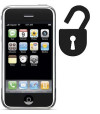Thanks to a federal copyright law ruling on Monday by the Library of Congress, jailbreaking your iPhone doesn’t have to be kept to the underground forums like it's alcohol during a digital prohibition. The process is now completely legal under US law. Grab a glass of e-freedom! The resulting decision was part of a tri-yearly board review by the Library which discusses exemptions to the Digital Millennium Copyright Act (DMCA). The legalization of jailbreaking comprised two of the six provisions agreed upon today by the Library. See “ DMCA Changes: Copyright Rules Made More Flexible ”.
The filing was brought forth by the Electronic Frontier Foundation (EFF), who wanted handsets to be liberated from anticircumvention provisions in order to serve a greater purpose for their users who were living under a shadow of the “law's overbroad reach” with their hands tied with creative limitations.
Thanks to this victorious outcome, smartphone owners will be able to install lawfully obtained third-party apps or custom operating systems which unlock aspects of the phone otherwise shut off to an unassuming user. Also as a result of this decisions, owners will be able to install software which removes carrier limitations and circumvents restrictions, allowing universal access to network providers across all mobile fronts.
The Register of Copyrights, part of the Library of Congress, came to the following conclusion in regards to Apple’s defense:
[INDENT]“Apple is not concerned that the practice of jailbreaking will displace sales of its firmware or of iPhones. Indeed, since one cannot engage in that practice unless one has acquired an iPhone, it would be difficult to make that argument. Rather, the harm that Apple fears is harm to its reputation. Apple is concerned that jailbreaking will breach the integrity of the iPhone's ecosystem. The Register concludes that such alleged adverse effects are not in the nature of the harm that the fourth fair use factor is intended to address."
"Fewer than 50 bytes of code out of more than 8 million bytes, or approximately 1/160,000 of the copyrighted work as a whole. Where the alleged infringement consists of the making of an unauthorized derivative work, and the only modifications are so de minimis, the fact that iPhone users are using almost the entire iPhone firmware for the purpose for which it was provided to them by Apple undermines the significance"
"On balance, the Register concludes that when one jailbreaks a smartphone in order to make the operating system on that phone interoperable with an independently created application that has not been approved by the maker of the smartphone or the maker of its operating system, the modifications that are made purely for the purpose of such interoperability are fair uses."[/INDENT]
A heated debate between the U.S. Copyright Office and Apple began in February of 2009, when the EFF brought forth their initial filing. Apple claimed users who jailbroke their products and dissected its software to circumvent its intended purposes were in direct violation of the Digital Millennium Copyright Act (DMCA). They also cited a tremendous loss of company profits due to extended customer support man-hours, providing assistance to users suffering problems with jailbroken products. That debate ends today.
This is just another domino falling down in a row of losses looking to topple over the last in a line: Steve Jobs. Amongst reception woes and the iPhone Case Program being in full swing , Jobs is most likely somewhere crawled up in the fetal postion crying over the prospects of lost revenue from the iPhone App Store. After today, one thing is certain: he may take our money, but he will never take our freedom.

